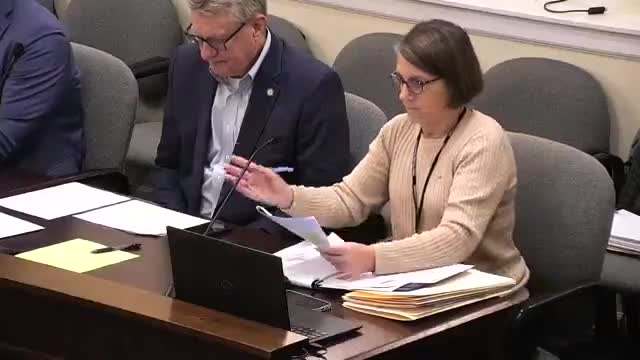Council advances county ordinance to set up local Cannabis Community Reinvestment and Repair Fund; moves bill to third reader
Get AI-powered insights, summaries, and transcripts
Subscribe
Summary
Talbot County advanced Bill 16‑20 to third reader, a local ordinance that would create a county Community Reinvestment and Repair Fund and a commission to allocate state cannabis reinvestment dollars.
The Talbot County Council on Tuesday authorized third reader for Bill 16‑20, a draft ordinance to establish a local Community Reinvestment and Repair Special Revenue Fund and a Talbot County Reinvestment and Repair Commission to administer funds distributed by the state under the Maryland Alcoholic Beverages and Cannabis Article.
The ordinance, as summarized by county staff, would provide the legal mechanism for the county to receive and spend state‑distributed cannabis community reinvestment funds and related revenue sources (sales tax revenue from cannabis, medical‑to‑adult‑use conversion fees and other designated sources). County staff told the council that Talbot County has about $730,000 in CRF revenue currently held and that local law is required before those dollars can be expended.
The bill authorizes a commission — staff suggested the existing Talbot Family Network membership as the initial commission — and directs the commission to develop application and awarding procedures. Eligible uses listed in state law and cited by staff include education and after‑school programs, behavioral health and crisis response, homeless housing and prevention, and other community‑based initiatives that benefit low‑income or disproportionately impacted areas.
A councilmember noted a Baltimore City decision reported in the Baltimore Sun about earlier local distributions; staff recommended moving the bill to third reading at this meeting to allow the county to begin the administrative setup sooner. The council voted to advance the bill to third reader. Roll call on the motion to advance showed one abstention (Milkey) and the remaining members voting yes. The council later authorized third reader and voted on the bill; the final vote recorded the same pattern (Milkey abstained; other members voted aye).
